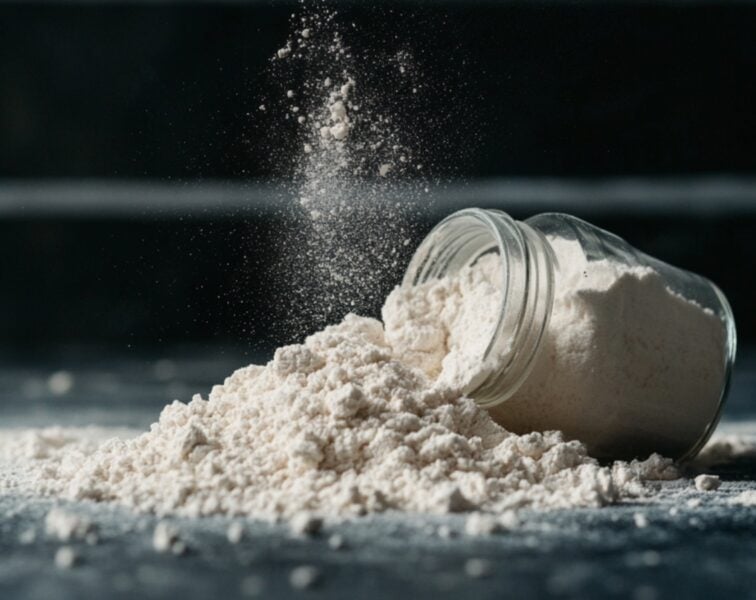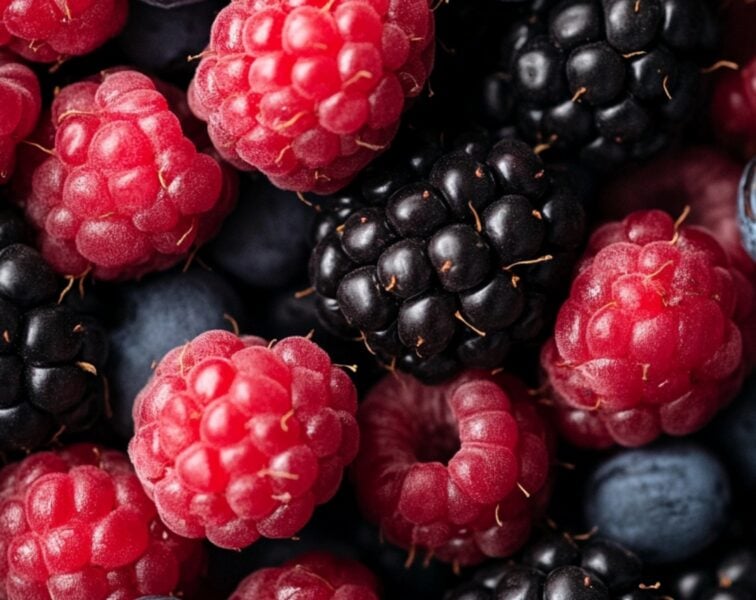In this “Ask Me Anything” (AMA) episode, Peter explains how to evaluate sugar and its substitutes in the context of health. Peter explores the role of sweeteners in three common use-cases – beverages, protein supplements, and sweet treats – and breaks down how our evolutionary craving for sweetness now clashes with today’s food environment. He examines whether sugar is uniquely fattening, the hormonal effects of sugar consumption, and the significance of timing in sugar intake. The episode compares natural versus refined sugars, sugar in beverages versus in solid foods, and the pros and cons of popular sweeteners including saccharin, aspartame, sucralose, allulose, and sugar alcohols like erythritol and xylitol. With a focus on weight management, glycemic impact, gut health, and long-term safety, this episode offers a comprehensive guide to navigating the sweetener landscape with clarity and nuance.
If you’re not a subscriber and listening on a podcast player, you’ll only be able to hear a preview of the AMA. If you’re a subscriber, you can now listen to this full episode on your private RSS feed or on our website at the AMA #74 show notes page. If you are not a subscriber, you can learn more about the subscriber benefits here.
Would you like access to this entire podcast episode, its extensive show notes, and more premium content?
We discuss:
Timestamps: There are two sets of timestamps associated with the topic list below. The first is audio (A), and the second is video (V). If you are listening to this podcast with the audio player on this page or in your favorite podcast player, please refer to the audio timestamps. If you are watching the video version on this page or YouTube, please refer to the video timestamps.
- A quick tangent on chess and parenting [A: 2:30, V: 1:00];
- Overview of key scenarios for evaluating sugar and sweeteners [A: 6:15, V: 5:15];
- Why humans are hardwired to crave sweetness [A: 13:30, V: 13:15];
- Evaluating whether sugar is uniquely fattening or more harmful than other macronutrients under isocaloric conditions [A: 15:15, V: 15:15];
- Why sugar drives appetite: low satiety, insulin response, and reward system activation [A: 18:45, V: 19:15];
- How sugar type, liquid vs. solid form, and processing level influence appetite and metabolic impact [A: 20:15, V: 21:15];
- Addressing the common belief that natural sugars are healthier than refined sugars [A: 26:00, V: 27:45];
- How the timing of sugar consumption alters the body’s metabolic response [A: 29:15, V: 31:55];
- How Peter advises patients on sugar intake, factoring in metabolic health, insulin sensitivity, and activity level [A: 34:45, V: 38:00];
- The most common sugar substitutes, their sweetness relative to sugar, and their caloric content [A: 36:30, V: 40:20];
- Evaluating the role of sugar substitutes in weight control: efficacy vs. effectiveness and limitations in study design [A: 40:15, V: 44:30];
- Assessing the real-world impact of sugar substitutes on weight, and the role of sweetness without calories [A: 44:00, V: 48:50];
- The impact of sugar substitutes on glycemic control [A: 47:30, V: 52:50];
- Are microbiome changes from artificial sweeteners substantial enough to cause obesity and diabetes? [A: 50:30, V: 56:30];
- How Peter advises patients on the use of sugar substitutes across different contexts [A: 52:30, V: 58:45];
- Allulose—a sweetener with unique satiety and glycemic benefits and potential for weight control [A: 57:15, V: 1:04:30];
- Emerging evidence that stevia, monk fruit, and sugar alcohols may provide modest metabolic benefits compared to sugar [A: 1:03:00, V: 1:10:45];
- Sugar alcohols explained [A: 1:04:15, V:1:12:20];
- Xylitol’s dental health benefits and considerations for use [A: 1:05:00, V: 1:13:20];
- Artificial sweeteners and cancer risk: evaluating evidence, the aspartame controversy, and the role of dose in toxicology [A: 1:07:15, V: 1:15:55];
- Sugar substitutes and cardiovascular disease: assessing flawed studies and the absence of direct risk evidence [A: 1:11:00, V: 1:20:15];
- Why artificial sweeteners seem to attract so many negative headlines [A: 1:12:45, V: 1:22:05];
- Balancing benefits and risks of sugar substitutes: guidance for desserts, beverages, and protein products [A: 1:14:15, V: 1:24:00]; and
- More.
Show Notes
A quick tangent on chess and parenting [A: 2:30, V: 1:00]
Chess anecdote – losing to his 7-year-old
- Peter thought he was playing the best chess game of his life but made a blunder and lost in two moves to his 7-year-old son.
- His son now wins about six out of ten games, which is both enjoyable to watch and frustrating to experience.
- Nick jokes that based on Peter’s personality and his book, people might expect he wouldn’t handle losing to a child well.
Peter’s competitiveness and sportsmanship lesson
- Peter insists he is not externally competitive, only internally.
- Chess is the only activity where losing to another person makes him truly upset.
- He tries to model sportsmanship for his sons by shaking hands and saying “good game” after losing, however, in a recent incident he lost to his son and, out of frustration, smacked his chess king piece across the room instead of calmly resigning.
- His wife witnessed it and sarcastically praised him for being a great role model for sportsmanship at age 52.
- It may not help that is son is a bit of a trash talker
- His son’s nickname is “Little Bag Smoker,” because he often taunts, “I’m going to smoke your bags.”
Overview of key scenarios for evaluating sugar and sweeteners [A: 6:15, V: 5:15]
Introduction to the topic
- Today’s topic is sugar and sugar substitutes—chosen because it’s a common listener question and a daily decision point for many people.
- Plan to cover:
- Why we’re wired to crave sugar.
- Sugar’s effects on appetite, weight, and metabolic health.
- Natural vs. refined sugar.
- Timing of sugar intake vs. total quantity consumed.
- Sugar substitutes: aspartame, sucralose, stevia, monk fruit, allulose.
- Effects on weight, insulin, microbiome.
- Sugar alcohols like xylitol and erythritol.
- Long-term safety concerns (cancer, cardiovascular disease).
- How to apply the science to personal and patient choices.
Peter’s two preliminary comments
- 1) Updated literature – This topic was covered in 2020 on AMA #18, but new research (especially on non-nutritive sweeteners) justifies revisiting it. Science progresses, and there have been meaningful updates.
- 2) Framework focus – Despite diving into technical details, the goal is to land on practical recommendations for real-world scenarios.
Goal for the episode – key practical questions
- Is eating a lot of sugar “okay”?
- If not, is switching to sugar substitutes (while keeping the same quantity of food/beverage) a better option?
- Example: Six regular Mountain Dews/day vs. six diet Mountain Dews/day.
- Trade-offs between real sugar and artificial sweeteners in different contexts.
The three main “use cases” for artificial sweeteners
- 1) Beverages – Regular vs. diet soda or other drinks.
- 2) Protein products – Protein powders and bars often require sweetening.
- Protein is difficult to work with, tastes unpleasant without sweeteners, and is best obtained from whole food when possible.
- Processed protein sources fall into:
- Dry/salty forms (e.g., jerky, sticks).
- Sweetened forms (e.g., shakes, bars).
- If sweetened, the choice is between artificial sweeteners and real sugar.
- Peter likes the David Bar
- 3) Sweet treats – Desserts, candy, and other indulgences.
- The question: Is it better to satisfy cravings with products sweetened by sucrose/HFCS or artificial sweeteners?
Setting expectations for the listener
- To answer these questions, listeners will need to understand some biochemistry.
- Peter apologizes in advance but stresses it’s necessary to “land the plane” with meaningful, actionable conclusions.
Why humans are hardwired to crave sweetness [A: 13:30, V: 13:15]
Why are humans so hardwired to crave sweetness?
{end of show notes preview}




